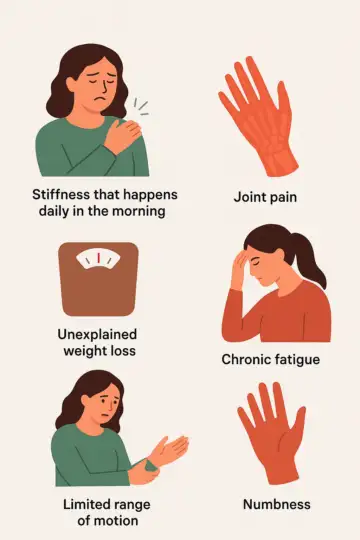Delhi pollution to increase rheumatoid arthritis risk? Manipal Hospital orthopaedic surgeon reveals 7 warning signs

Pollution levels continue to surge after Diwali in Delhi and NCR. The most immediate consequences include respiratory issues. But did you know prolonged exposure to pollutants can trigger autoimmune conditions such as rheumatoid arthritis?
A January 2, 2025, study found a connection between air pollution and many autoimmune diseases, including rheumatoid arthritis. Pollutants like PM2.5 and PM10, which are fine particles suspended in the air, can enter the bloodstream and trigger inflammation, which subsequently affects joint health.
With Delhi and NCR’s AQI sticking to the hazardous range for days on end, there’s a big risk of conditions like rheumatoid arthritis, which was earlier considered uncommon in younger adults. It shines light on an alarming health crisis, as air quality doesn’t affect solely the respiratory system but is a big threat to the overall immune system itself.
To learn more about autoimmune disease, like rheumatoid arthritis, HT Lifestyle reached out to orthopaedic surgeon Dr Rajeev Verma, chairman, Manipal Institute of Bone and Joints, Manipal Hospital Dwarka in New Delhi. He alerted that lately this condition is being seen in younger adults more often.
While pollution is one of the causes, Dr Verma noted that genetics, sedentary lifestyle, and unhealthy diet also play important roles.
“Rheumatoid arthritis is an autoimmune disease in which the immune system attacks the joint lining (synovium), leading to inflammation, pain, and, over time, joint damage,” Dr Verma explained. This happens when the body’s own defence system attacks the joints. It mistakenly targets body’s tissues along the joints, causing all the pain or stiffness.
How is rheumatoid arthritis different from osteoarthritis?
You may have heard of another joint-related issue called osteoarthritis. According to the orthopaedic surgeon, the major difference lies in the cause. Osteoarthritis is more from ageing, the gradual wear and tear that happens, while rheumatoid arthritis is rooted in autoimmune problems.
The surgeon said, “Unlike osteoarthritis, which is caused by wear and tear, rheumatoid arthritis is systemic and can affect other organs such as the lungs, eyes, and heart.”
7 warning signs of rheumatoid arthritis
 To be well-prepared, you need to know the warning signs of rheumatoid arthritis. Dr Verma shared these signs:
To be well-prepared, you need to know the warning signs of rheumatoid arthritis. Dr Verma shared these signs:
- Stiffness that is not transient and happens daily in the morning for more than 30-45 minutes
- Swollen, warm joints, particularly in the fingers, wrists, knees, and ankles.
- Symmetrical joint pain; pain and inflammation on both sides of the body (e.g., both wrists or both knees), as opposed to injuries or strain, which are typically one-sided.
- Chronic fatigue and low-grade, unexplained fever
- Weight loss without effort as inflammation in rheumatoid arthritis, can heighten metabolism and reduce appetite, causing unwanted weight loss.
- Limited range of motion with difficulty in bending or straightening involved joints, complicating everyday activities such as typing, cooking, or even walking.
- Numbness or tingling in hands and feet, particularly in the fingers.
7 preventive tips to reduce risk
To safeguard yourself from this autoimmune condition during this time, the orthopaedic surgeon shared these 7 efficient prevention tips:
1. Consume anti-inflammatory diet:
- Add omega-3 foods such as fish, flaxseeds, and walnuts.
- Fruits, vegetables, and whole grains high in antioxidants promote immune balance.
2. Quit smoking:
- Smoking raises your risk of getting rheumatoid arthritis and makes symptoms worse.
- Stopping smoking makes lung and joint health better.
3. Exercise regularly:
- Low-impact activities such as yoga, walking, or swimming make joints more flexible.
- They minimise stiffness without straining the body too much.
4. Get adequate sleep daily:
- Quality sleep is important for immune function and helps your body repair inflammation.
- Aim for 7-8 hours of uninterrupted rest every day.
5. Manage your stress levels effectively:
- Prolonged stress can cause or activate autoimmune reactions.
- Use meditation, slow breathing, or indulge in calm hobby activities.
6.Limit alcohol and processed foods:
- Excess alcohol and junk food can heighten inflammation and interfere with medication.
- Opt for moderation and nutrient-rich alternatives.
7. Know your family history and get regular check-ups:
- If there is a history of autoimmune disorders in your family, take a doctor’s advice even for minor signs.
- Early screening allows early diagnosis.









